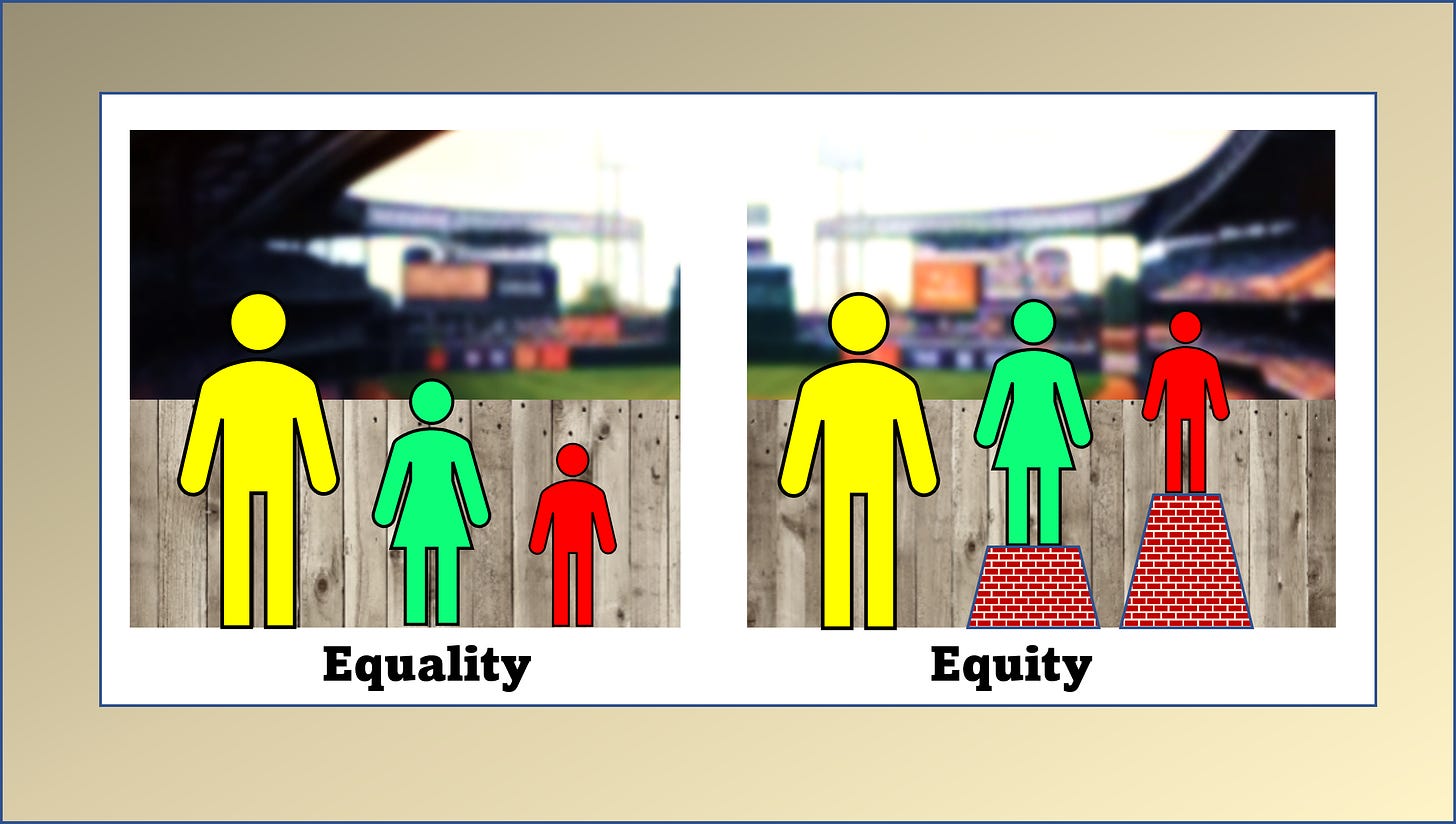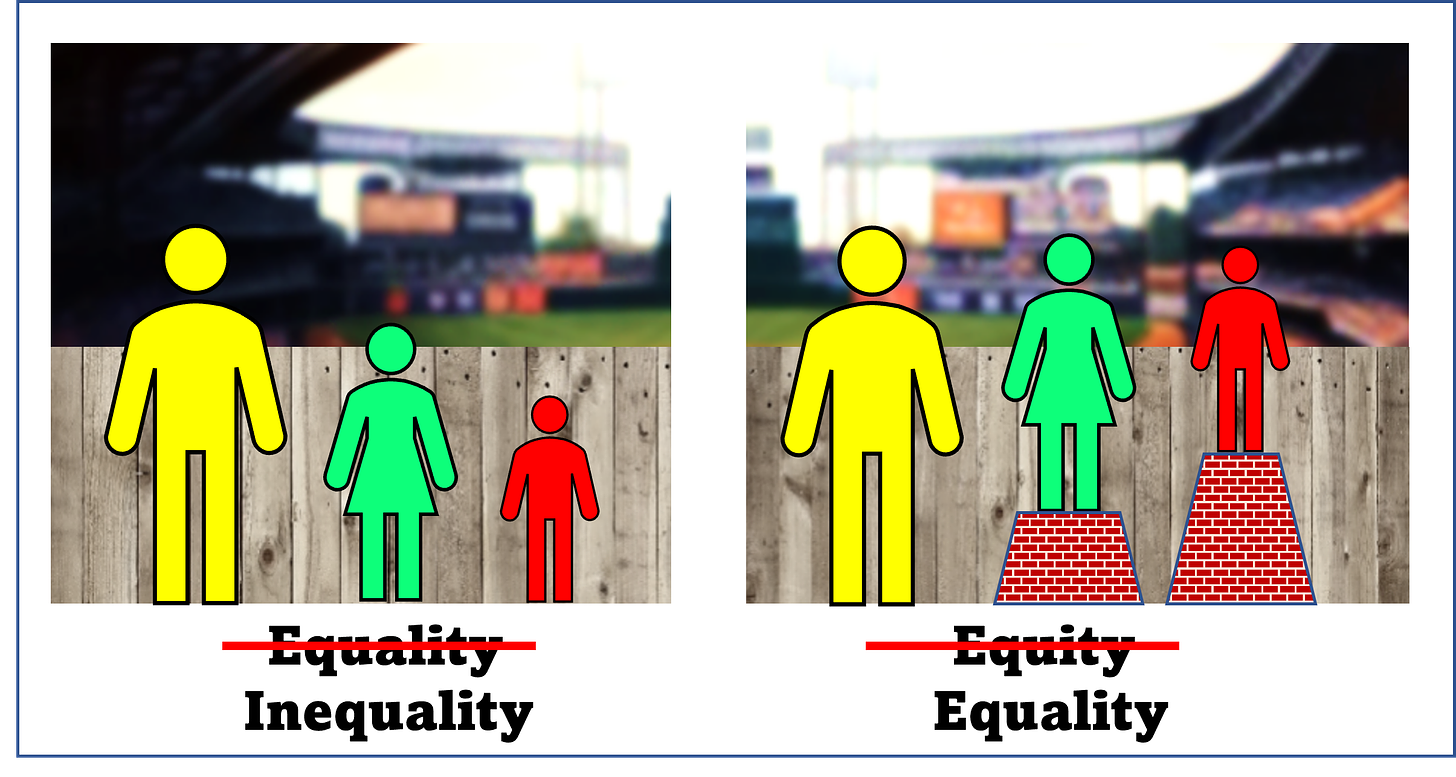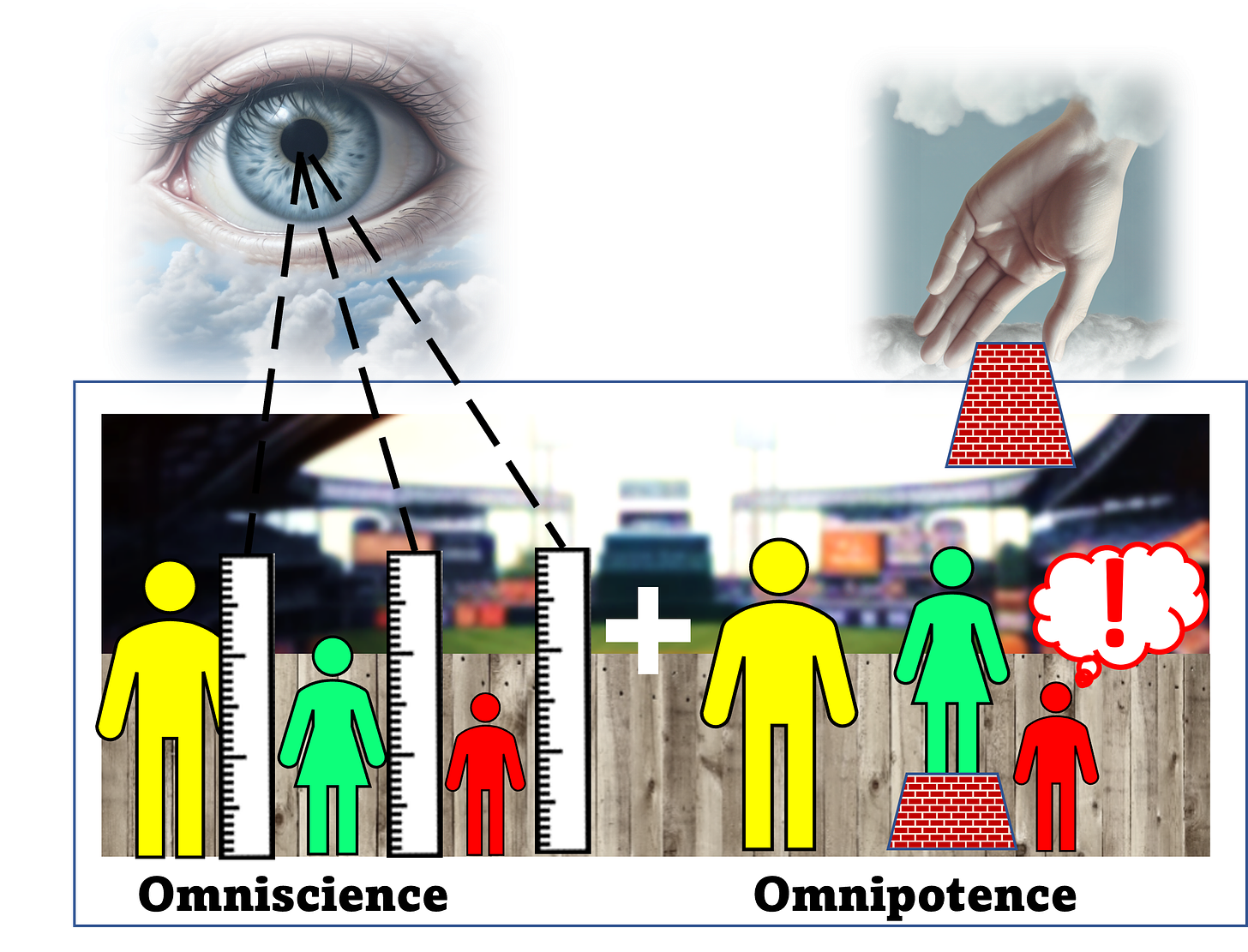From Robert Graboyes' Bastiat's Window substack:
Equity-toonz
One Meme is Worth a Thousand Pictures
There’s a move afoot to replace America’s aspirational goal of equality (equal opportunity and equality under the law) with “equity” (equal outcomes designed and implemented by elite experts). A sprawling industry has arisen to spread the gospel of equity across American life. Its catechism has been greatly assisted by an internet-wide burst of colorful little visual parables, all purporting to show the difference between the sins of equality and the blessings of equity. Google “equity,” and your screen will explode with cartoons involving baseball games, apple orchards, blackboards, bike races, street crossings, bookshelves, and more. All of these myriad representations share one identical message.
A web page at the George Washington University’s School of Public Health uses an apple tree metaphor whose lesson seems to be that if you don’t have the sense to move your ladder to the side where the apples are, it’s “inequitable” and someone should install scaffolding and cables to bend the tree toward wherever you stuck your ladder. The website then conjures up a “Magic Benefactor” to explain equality and equity. It’s magic because deserving people are “given” and “allocated” resources, apparently without anyone else required to give up those resources:
“Equality means each individual or group of people is given the same resources or opportunities. Equity recognizes that each person has different circumstances and allocates the exact resources and opportunities needed to reach an equal outcome.”
As anyone with a knowledge of history and political philosophy knows, a sizable number of countries spent much of the 20th century trying to allocate the exact resources and opportunities needed to reach equal outcomes. The results were far less than equitable. However, as any Swiss banker can tell you, the rulers of these countries did accumulate considerable equity while impoverishing their countries.
Equity folks have another visual homily, the Stadium & Fence meme, that is brilliantly clever. It’s simple, intuitive, and heartwarming. It is also naïve, misleading, and hubristic. Let’s explore this meme and nine ways in which it fails.
The Basic Stadium & Fence Meme
Problem #1: “Inequality” is labeled “Equality.”
The left-hand picture doesn’t represent “equality.” An egalitarian would say that the left-hand picture represents inequality—an unfortunate but universal aspect of the human condition. The right-hand picture represents equality—a condition to which an egalitarian aspires, fully cognizant that it will never be fully realized. Bad luck, injustice, one’s starting point in life, and one’s own personal choices inevitably lead to some measure of inequality. Siblings of equal intelligence, from the same household, with identical opportunities often end up in vastly different levels of well-being. The Magic Benefactor can allocate all the resources it wants to Fredo, but he’s never going to be Michael.
Problem #2: The meme assumes an omniscient, omnipotent planner.
With the Magic Benefactor, individuals are helpless, passive beings, devoid of agency. Under equality, an individual is “given” resources and opportunities. Under equity, some unspecified being “allocates” resources and opportunities. In fact, these unnamed allocators are so perceptive and so powerful that they can allocate “the exact resources and opportunities needed to reach an equal outcome.” This is no Book of Job or Leibniz theodicy problem—where bad things happen to good people. Rather, it is Candide, where Dr. Pangloss always proclaims this to be the best of all possible worlds.
Problem #3: Redistribution can fail or make things worse.
The past century was littered with redistributive schemes designed to achieve equality of outcomes and which ended in failures. There are monstrous cases, like China’s Cultural Revolution. But also benign cases, like America’s well-intended, but frustratingly ineffective War on Poverty. Central planning (i.e., allocating “the exact resources and opportunities needed to reach an equal outcome”) has a remarkable history of ineffectiveness and counterproductivity—where sincere effort to improve the lot of those at the bottom ensnares them in a poverty trap.
Problem #4: Maybe the tall guy sinks or leaves....



